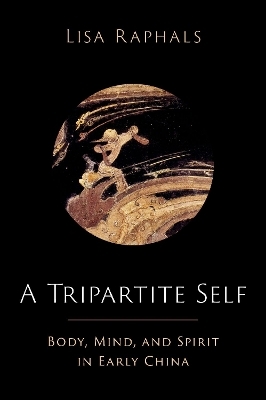
A Tripartite Self
Oxford University Press Inc (Verlag)
978-0-19-763087-7 (ISBN)
Chinese philosophy has long recognized the importance of the body and emotions in extensive and diverse self-cultivation traditions. Philosophical debates about the relationship between mind and body are often described in terms of mind-body dualism and its opposite, monism or some kind of "holism." Monist or holist views agree on the unity of mind and body, whereas mind-body dualists take body and mind as essentially different. Debates about mind-body dualism have become important in Chinese and comparative philosophy because of claims that there was no mind-body dualism in early China, in contrast to Western traditions.
This book argues that there was an important divergence in early China between two views of the self. In one, mind and spirit are closely aligned, and are understood to rule the body as a ruler rules a state. But in the other, the person is tripartite, and mind and spirit are independent entities that cannot be reduced to a material-non-material binary. In some cases, body and spirit are even aligned in opposition to mind. A Tripartite Self addresses both philosophical and technical literatures (including evidence from Chinese excavated texts) to broaden a type of inquiry that frequently is applied only to philosophical texts. Lisa Raphals surveys this divergence and argues for the importance of a tripartite model of the person or self in early Chinese texts through the Han dynasty. The book will shed light on not only important contemporary debates of mind-body dualism within Chinese philosophy but also within East-West comparative approaches to understanding the self.
Lisa Raphals is Director of the Classics Program and the Program in Comparative Ancient Civilizations at the University of California, Riverside. Her previous books include Divination and Prediction in Early China and Ancient Greece; Sharing the Light: Representations of Women and Virtue in Early China; Knowing Words: Wisdom and Cunning in the Classical Traditions of China and Greece; and, as coeditor with Tom Angier, Skill in Ancient Ethics: The Legacy of China, Greece and Rome.
Acknowledgments
Dedication
Notes on Conventions, Editions and Transcriptions
Introduction
Intersecting Perspectives
Mind-body and Spirit-Body Dualism
A Tripartite Self
Plan of the Book
1 Semantic Fields of Body, Mind, and Spirit
Bodies
Minds
Spirit(s)
2 Virtue, Body, and Mind in the Shijing
Bodies in the Shijing
Xin
Spirits
More on Embodied Virtue
Conclusion
3 Mind and Spirit Govern the Body
Body, Mind, and Spirits in the Analects
The Mozi
the Emergence of Internal Spirit in the Guanzi
Heart-Mind as Ruler in the Mencius
Xunzi and the Hegemony of the Heart-Mind
Rulers and Slaves in the Guodian texts
The Mind Is Called the Center (Xin shi wei zhong)
Heart-Mind and Spirit in the Huainanzi and Wenzi
Conclusion
4 Body, Mind and Spirit: A Tripartite View
Yang Zhu's Discovery of the Body
Mind and spirit in the Guanzi
The Zhuangzi
Spirit and Body in the Shiwen
The Huainanzi
Conclusion
5 Body, Mind and Spirit in the Guodian Manuscripts
Body, Emotion and Heart-mind in Humans and Animals
Heart-mind and Body in the Xingzi Mingchu
Heart-Mind and Body in the Wuxing
Conclusions
6 Body, Mind and Spirit in Early Chinese Medicine
Mind-Body Dualism and Medical Texts
Shén and Xin in the Huangdi Neijing
Conclusion
7 Conclusions
Inner and Outer Reconsidered
Personal Identity and Persistence
Embodied Cognition
8 Glossary
9 Appendices
Time Lines
Semantic Fields of Body, Mind, Soul, and Spirit
The Brain in the Huangdi Neijing
10 References
11 Index
| Erscheinungsdatum | 01.03.2023 |
|---|---|
| Verlagsort | New York |
| Sprache | englisch |
| Maße | 236 x 164 mm |
| Gewicht | 549 g |
| Themenwelt | Geschichte ► Allgemeine Geschichte ► Altertum / Antike |
| Geisteswissenschaften ► Philosophie ► Östliche Philosophie | |
| Geisteswissenschaften ► Philosophie ► Philosophie Altertum / Antike | |
| ISBN-10 | 0-19-763087-1 / 0197630871 |
| ISBN-13 | 978-0-19-763087-7 / 9780197630877 |
| Zustand | Neuware |
| Informationen gemäß Produktsicherheitsverordnung (GPSR) | |
| Haben Sie eine Frage zum Produkt? |
aus dem Bereich


